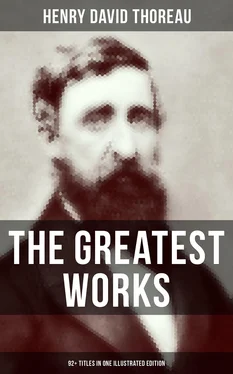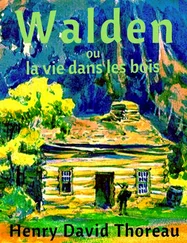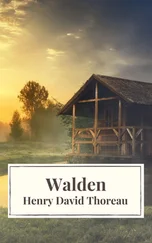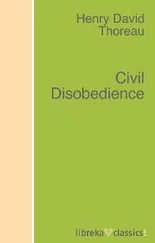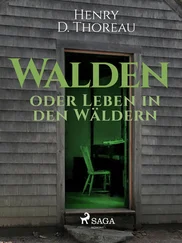His slave I will tarry with him.
For why should I fly
Over mountains and fields,
And perch upon trees,
Eating some wild thing?
Now indeed I eat bread,
Plucking it from the hands
Of Anacreon himself;
And he gives me to drink
The wine which he tastes,
And drinking, I dance,
And shadow my master's
Face with my wings;
And, going to rest,
On the lyre itself I sleep.
That is all; get thee gone.
Thou hast made me more talkative,
Man, than a crow.
Love walking swiftly,
With hyacinthine staff,
Bade me to take a run with him;
And hastening through swift torrents,
And woody places, and over precipices,
A water-snake stung me.
And my heart leaped up to
My mouth, and I should have fainted;
But Love fanning my brows
With his soft wings, said,
Surely, thou art not able to love.
Nature has given horns
To bulls, and hoofs to horses,
Swiftness to hares,
To lions yawning teeth,
To fishes swimming,
To birds flight,
To men wisdom.
For woman she had nothing beside;
What then does she give? Beauty,—
Instead of all sheilds,
Instead of all spears;
And she conquers even iron
And fire, who is beautiful.
Horses have the mark
Of fire on their sides,
And some have distinguished
The Parthian men by their crests;
So I, seeing lovers,
Know them at once,
For they have a certain slight
Brand on their hearts.
What dost thou wish me to do to thee,—
What, thou loquacious swallow?
Dost thou wish me taking thee
Thy light pinions to clip?
Or rather to pluck out
Thy tongue from within,
As that Tereus did?
Why with thy notes in the dawn
Hast thou plundered Bathyllus
From my beautiful dreams?
Thracian colt, why at me
Looking aslant with thy eyes,
Dost thou cruelly flee,
And think that I know nothing wise?
Know I could well
Put the bridle on thee,
And holding the reins, turn
Round the bounds of the course.
But now thou browsest the meads,
And gambolling lightly dost play,
For thou hast no skilful horseman
Mounted upon thy back.
Love once among roses
Saw not
A sleeping bee, but was stung;
And being wounded in the finger
Of his hand, cried for pain.
Running as well as flying
To the beautiful Venus,
I am killed, mother, said he,
I am killed, and I die.
A little serpent has stung me,
Winged, which they call
A bee,—the husbandmen.
And she said, If the sting
Of a bee afflicts you,
How, think you, are they afflicted,
Love, whom you smite?
Late in the afternoon, for we had lingered long on the island, we raised our sail for the first time, and for a short hour the southwest wind was our ally; but it did not please Heaven to abet us along. With one sail raised we swept slowly up the eastern side of the stream, steering clear of the rocks, while, from the top of a hill which formed the opposite bank, some lumberers were rolling down timber to be rafted down the stream. We could see their axes and levers gleaming in the sun, and the logs came down with a dust and a rumbling sound, which was reverberated through the woods beyond us on our side, like the roar of artillery. But Zephyr soon took us out of sight and hearing of this commerce. Having passed Read's Ferry, and another island called McGaw's Island, we reached some rapids called Moore's Falls, and entered on "that section of the river, nine miles in extent, converted, by law, into the Union Canal, comprehending in that space six distinct falls; at each of which, and at several intermediate places, work has been done." After passing Moore's Falls by means of locks, we again had recourse to our oars, and went merrily on our way, driving the small sandpiper from rock to rock before us, and sometimes rowing near enough to a cottage on the bank, though they were few and far between, to see the sunflowers, and the seed vessels of the poppy, like small goblets filled with the water of Lethe, before the door, but without disturbing the sluggish household behind. Thus we held on, sailing or dipping our way along with the paddle up this broad river, smooth and placid, flowing over concealed rocks, where we could see the pickerel lying low in the transparent water, eager to double some distant cape, to make some great bend as in the life of man, and see what new perspective would open; looking far into a new country, broad and serene, the cottages of settlers seen afar for the first time, yet with the moss of a century on their roofs, and the third or fourth generation in their shadows. Strange was it to consider how the sun and the summer, the buds of spring and the seared leaves of autumn, were related to these cabins along the shore; how all the rays which paint the landscape radiate from them, and the flight of the crow and the gyrations of the hawk have reference to their roofs. Still the ever rich and fertile shores accompanied us, fringed with vines and alive with small birds and frisking squirrels, the edge of some farmer's field or widow's wood-lot, or wilder, perchance, where the muskrat, the little medicine of the river, drags itself along stealthily over the alder-leaves and muscle-shells, and man and the memory of man are banished far.
At length the unwearied, never-sinking shore, still holding on without break, with its cool copses and serene pasture-grounds, tempted us to disembark; and we adventurously landed on this remote coast, to survey it, without the knowledge of any human inhabitant probably to this day. But we still remember the gnarled and hospitable oaks which grew even there for our entertainment, and were no strangers to us, the lonely horse in his pasture, and the patient cows, whose path to the river, so judiciously chosen to overcome the difficulties of the way, we followed, and disturbed their ruminations in the shade; and, above all, the cool, free aspect of the wild apple-trees, generously proffering their fruit to us, though still green and crude,—the hard, round, glossy fruit, which, if not ripe, still was not poison, but New-English too, brought hither its ancestors by ours once. These gentler trees imparted a half-civilized and twilight aspect to the otherwise barbarian land. Still farther on we scrambled up the rocky channel of a brook, which had long served nature for a sluice there, leaping like it from rock to rock through tangled woods, at the bottom of a ravine, which grew darker and darker, and more and more hoarse the murmurs of the stream, until we reached the ruins of a mill, where now the ivy grew, and the trout glanced through the crumbling flume; and there we imagined what had been the dreams and speculations of some early settler. But the waning day compelled us to embark once more, and redeem this wasted time with long and vigorous sweeps over the rippling stream.
It was still wild and solitary, except that at intervals of a mile or two the roof of a cottage might be seen over the bank. This region, as we read, was once famous for the manufacture of straw bonnets of the Leghorn kind, of which it claims the invention in these parts; and occasionally some industrious damsel tripped down to the water's edge, to put her straw a-soak, as it appeared, and stood awhile to watch the retreating voyageurs, and catch the fragment of a boat-song which we had made, wafted over the water.
Thus, perchance, the Indian hunter,
Читать дальше
